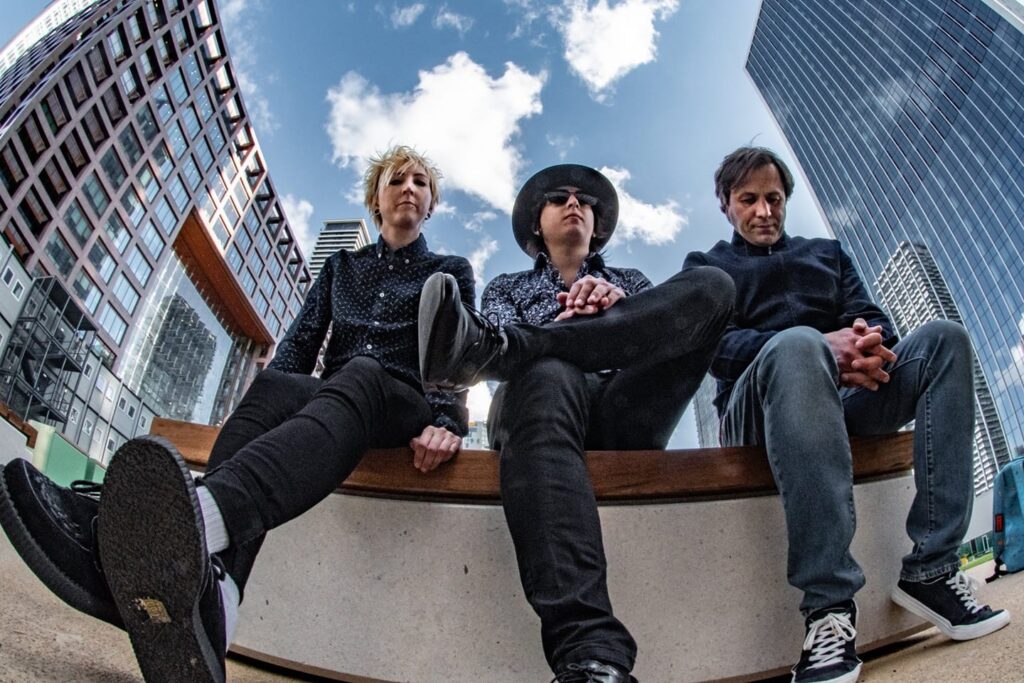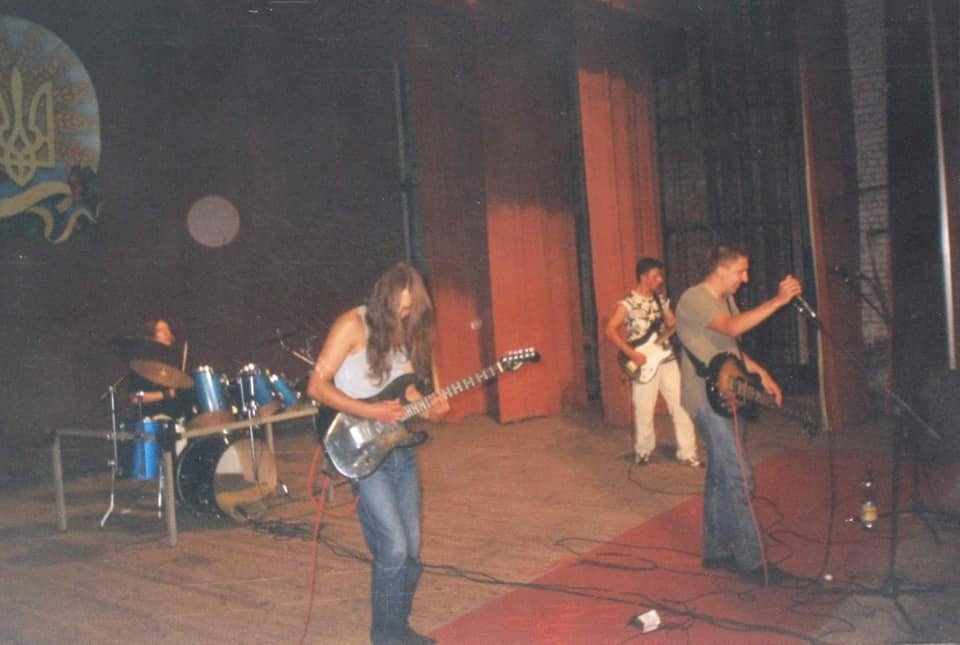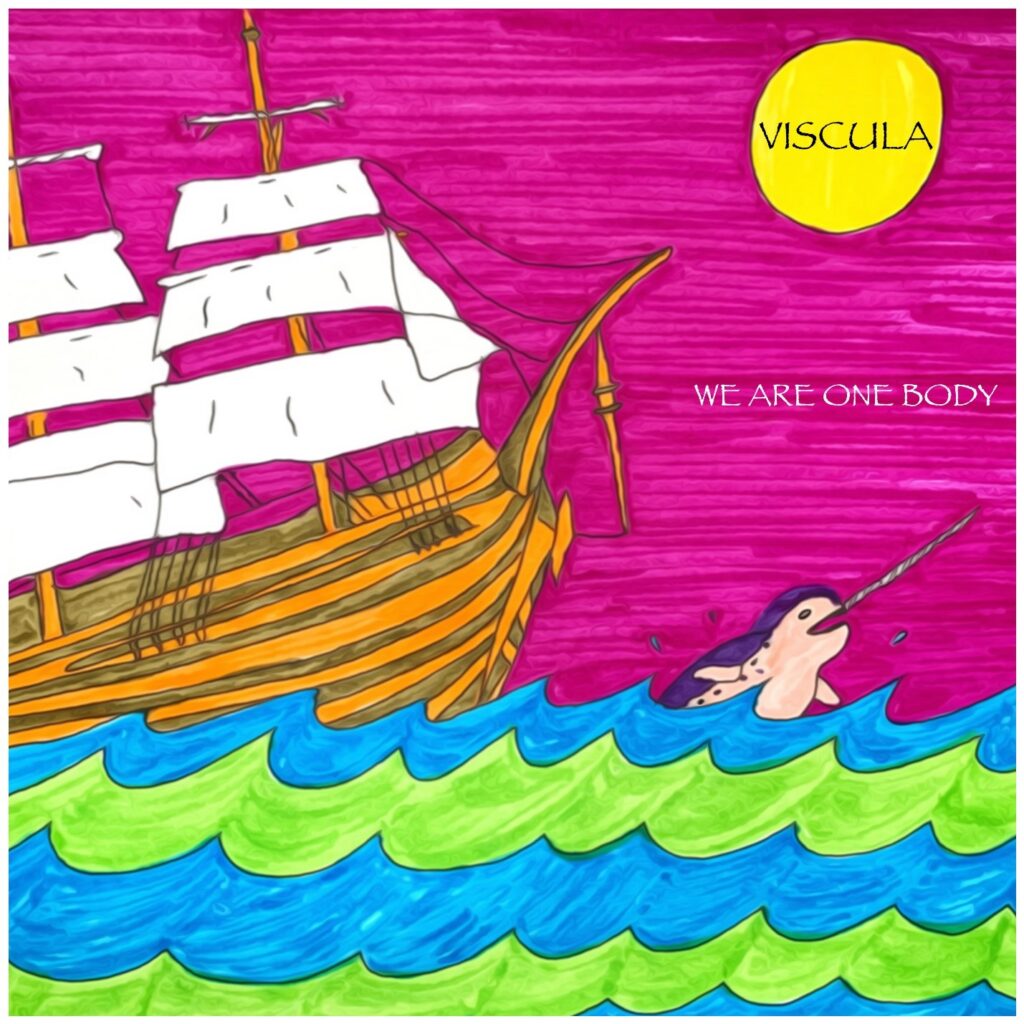In the Ukrainian city of Lutsk in 2002, the band Viscula was formed. The group was recognized as “The Best Indie Band” in 2013 at the renowned Chervona Ruta festival in Ukraine. Viscula relocated numerous times over the course of their thrilling 20-year rock and roll journey. The group gave numerous live performances and attracted listeners from all over the world to their charismatic music.
The singles and albums by Viscula were recorded in the UK, the USA, China, Ukraine, and Poland. The 2017 EP “We Are One Body” by Viscula is a representation of their work during the American era. Along with the band members, the mini-album was produced by drummer and OK Go member Dan Konopka as well as Natalie Kirch of Sharkmuffin. Check out the EP and the exclusive interview with Viscula’s guitarist and founder Vitali Malyshko below:

1. Can you tell us a bit about where you come from and how it all got started?
VISCULA: I started my creative journey in the small Ukrainian town of Manevychi, where in the 90s the growth of the informal subculture, which was incredible for Ukraine, was raging, due to which, in turn, Manevychi began to be called the capital of rock. It was in that fertile environment that my first rock band Chuma (Plague) appeared. Later I moved to the city of Lutsk, where I organized the band Visсula.
2.Did you have any formal training or are you self-taught?
VISCULA: Yes, I studied classical guitar at a music school and later at an art college, but the biggest influence on me was the people I worked with. From each of my bandmates, I took what I found unique in them in terms of the approach to the creative process and music-making. It was a living school of rock n roll.
3. Who were your first and strongest musical influences and why the name‘VISCULA’?
VISCULA: The first and strongest musical influence on me was classic rock of the 60s and 70s. The band name Visсula was brought by the first our vocalist Oleg, and little is known about the true origin of this word, as such a word simply does not exist in all the languages we know, but it is definitely known that we started performing under this name in 2002.
4. What do you feel are the key elements in your music that should resonate with listeners, and how would you personally describe your sound?
VISCULA: I think that in every music, everyone should look for their own unique core that beckons and attracts. The music of the band Visсula is diverse and each of our albums is different from the previous one, but one way or another, everything is wrapped up in rock n roll and its magical impact on human souls.

5. Creative work in a studio or home environment, or interaction with a live audience? Which of these two options excites you most, and why?
VISCULA:
The most awe-inspiring thing for us is interacting with the public, where the strange and indescribable happens, for which we work and continue to create.
6. What’s your view on the role and function of music as political, cultural, spiritual, and/or social vehicles – and do you try and affront any of these themes in your work, or are you purely interested in music as an expression of technical artistry, personal narrative, and entertainment?
VISCULA:
Indeed, the role of music in all areas of human life, which you listed above, is huge. But all these meanings and epithets are given to all music by people who want to drag the idea of art into some other plane in order to use it as a weapon for their own purposes. We just want our music to resonate in people’s hearts and we are happy if it happens.
7. Do you feel that your music is giving you back just as much fulfillment as the amount of work you are putting into it or are you expecting something more, or different in the future?
VISCULA:
Can music satisfy an artist and a musician? No, if this happened, there would not be such a variety and experimentation in all areas of the musical process. This also applies to Viscula. We are always looking for new forms and methods in the realization of our own musical creativity, which feeds the whole organic of our inspiration.
8. Could you describe your creative processes? How do usually start, and go about shaping ideas into a completed song? Do you usually start with a tune, a beat, or a narrative in your head? And do you collaborate with others in this process?
VISCULA: The birth of a new piece of music is a big event and it is important to be able to capture this moment without losing the original impulse. Everyone goes through this process differently, and for us, each musical composition is composed of different components, such as melody and rhythm, improvisation and atmosphere, magic and trance.
9. What has been the most difficult thing you’ve had to endure in your life ormusic careerso far?
VISCULA: As for my personal music career, there have been so many difficulties that it is difficult to single out anything. The only important thing is that these difficulties will harden and inspire a further creative path.
10. On the contrary, what would you consider a successful, proud or significant point in your life or music career so far?
VISCULA: There are several moments that I value especially, it is cooperation and getting exciting experiences with artists and musicians that happen in my life and just bringing pleasure to people with my creative activity.
KEEP IN TOUCH:
FACEBOOK | INSTAGRAM | TWITTER | SPOTIFY | BANDCAMP | WEBSITE | YOUTUBE

